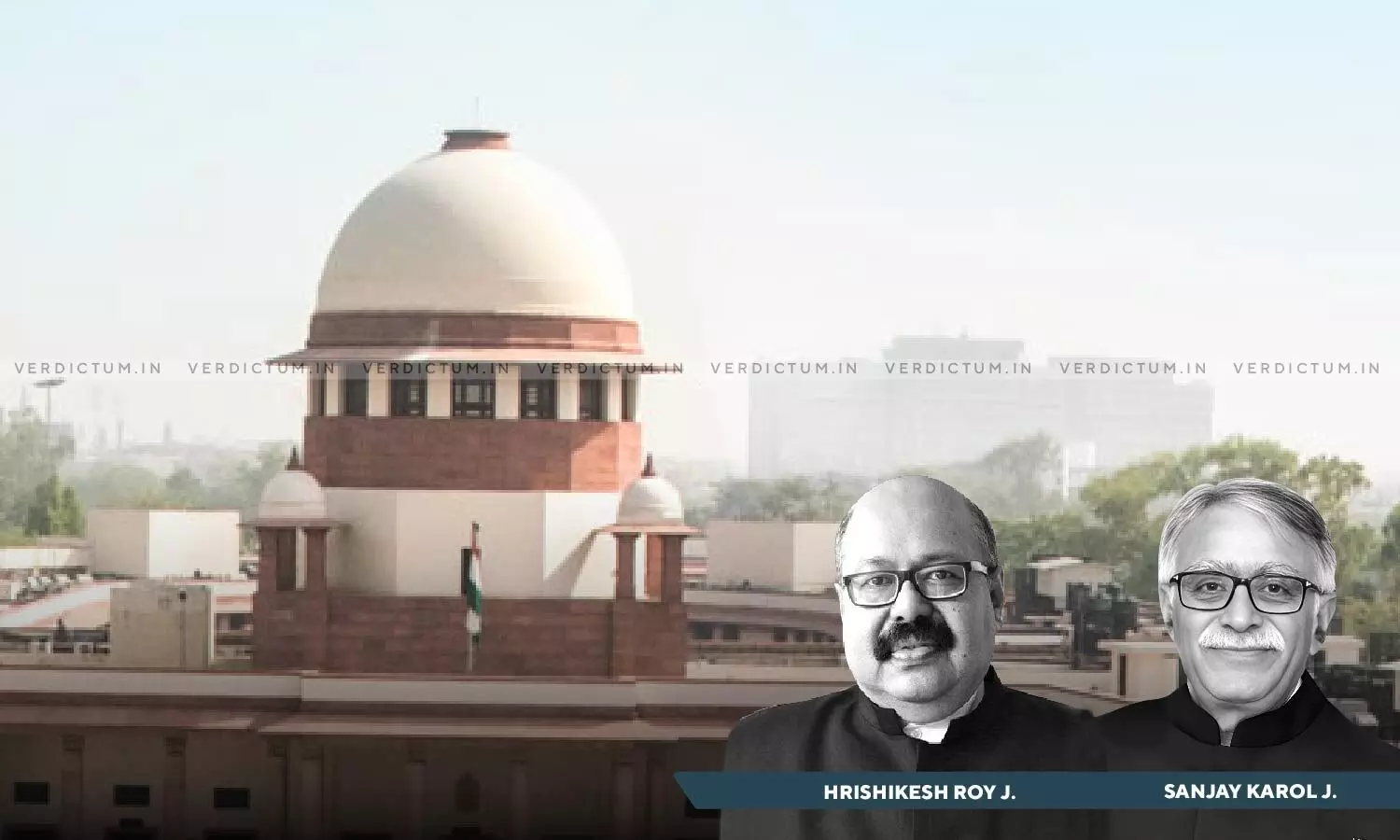
Lapse Of Limitation Bars Only Remedy But Does Not Extinguish Title: Supreme Court
 |
|The Supreme Court observed that as per Section 27 of the Limitation Act, 1963, the lapse of limitation bars only the remedy but does not extinguish the title.
The Court observed thus in an appeal relating to a property dispute.
The two-Judge Bench comprising Justice Hrishikesh Roy and Justice Sanjay Karol held, “That apart, it is now well settled that the lapse of limitation bars only the remedy but does not extinguish the title. Reference may be made to Section 27 of the Limitation Act. This aspect was overlooked entirely by the High Court in reversing the findings of the Courts below. It was not justified for it to have overlooked the aspect of limitation, particularly when deciding a dispute purely civil in nature.”
The Bench said that modern statutes of limitation operate, as a rule, not only to cut off one's right to bring an action for the recovery of property that has been in the adverse possession of another for a specified time but also to vest the possessor with title.
Senior Advocate Dama Seshadri Naidu appeared for the appellant while Advocate V. Ramasubramanian appeared for the respondent.
Facts of the Case -
In 1947, a mother transferred property inherited at the death of her husband and on one form to her two sons and in another, to her daughter. Some forty-odd years later, the daughter’s husband filed a suit in respect of such property in 1993 and the Additional District Munsiff decided the matter in 1999 and the Additional District and Sessions Judge returned a decision on the First Appeal in 2002. The Second Appeal was decided by the High Court in 2012 and it was against such order and judgment, that an appeal was preferred.
A Settlement Deed was executed by the said mother and her sons reverted the interests in the properties back to her. A further settlement deed was executed bequeathing absolute interest in properties and one of the sons had no children. His wife enjoyed life interest in the property bequeathed to her husband and they had an adopted daughter i.e., the appellant. The dispute entered the courts and hence the matter was before the Apex Court.
The Supreme Court after hearing the contentions of the counsel noted, “As against the rights of the paper-owner, in the context of adverse possession, there evolves a set of competing rights in favour of the adverse possessor who has, for a long period of time, cared for the land, developed it, as against the owner of the property who has ignored the property. … The intention of such statutes is not to punish one who neglects to assert rights but to protect those who have maintained the possession of property for the time specified by the statute under a claim of right or colour of title.”
The Court referred to the case of Shakti Bhog Food Industries Ltd. v. Central Bank of India (2020) 17 SCC 260 in which the Apex Court had taken note of Article 58 of the Limitation Act, 1963 vis-à-vis Article 113 (Any suit for which no period of limitation stands provided in the Schedule) and observed that the right to sue accrues ‘from the date on which the cause of action arose first’.
“The possible causes of action would be at the time of the Second Settlement Deed (1952) or Munusamy’s deed of settlement in favour of Pavunammal(1976) or at the time of Pavunammal’s vesting of the property in favour of Vasantha (1993) or at the death of Pavunammal (2004) where apart from declaration, he ought to have sought the relief of possession as well. It is clear from the record that on no such possible occasion, a declaration was sought, much less within the stipulated period of three years”, it further said.
The Court also noted that the suit for declaration was filed in 1993 which implies that the cause of action to seek any other declaration should have arisen only in the year 1990 and that there is nothing on record to show any cause of action having arisen at this point in time.
While examining whether the suit for declaration simpliciter was maintainable in view of Section 34 of the Specific Relief Act, 1963, the Court said, “Adverting to the facts of the present case, on a perusal of the plaint, it is evident that the plaintiff was aware that the appellant herein was in possession of the suit property and therefore it was incumbent upon him to seek the relief which follows. Plaintiff himself has stated that defendant no. 1 was in possession of the subject property and had sought to transfer possession of the same to defendant no.2, thereby establishing that he himself was not in possession of the subject property. We are not inclined to accept the submission of the learned counsel for the respondent on this issue.”
The Court observed that that after the death of the life-estate holder in 2004, there was no attempt made by the original plaintiff to amend the plaint to seek the relief of recovery of possession and it is settled law that amendment of a plaint can be made at any stage of a suit, even at the second appellate stage.
Accordingly, the Court allowed the appeal and set aside the impugned judgment.
Cause Title- Vasantha (Dead) Thr. LR. v. Rajalakshmi @ Rajam (Dead) Thr. LRs. (Neutral Citation: 2024 INSC 109)
Appearance:
Appellant: Senior Advocate Dama Seshadri Naidu and AOR G. Balaji.
Respondent: AOR V. Ramasubramanian